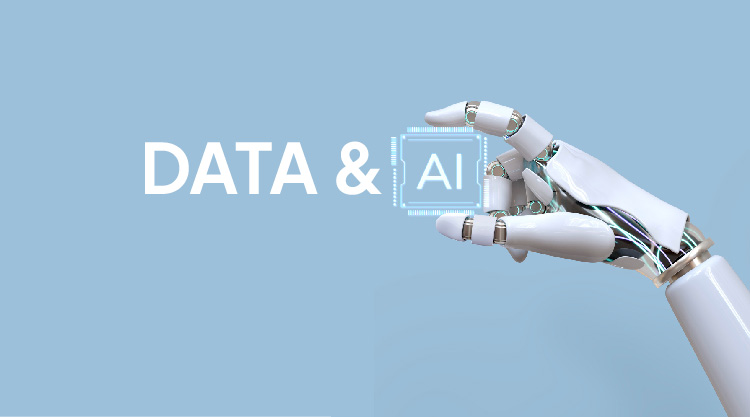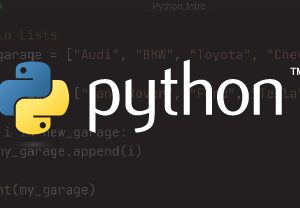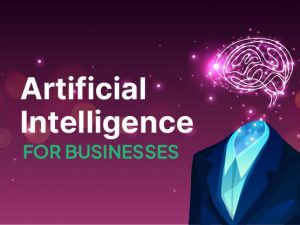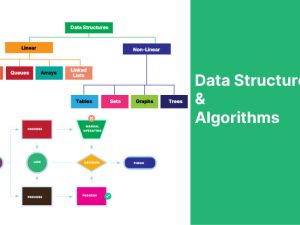Data Science Course
- Description
- Curriculum
- FAQ
- Notice
- Reviews
- Grade

What is Data Science?
Simple Explanation: The art of generating meaning from data and using it to solve real world problems.
Detailed Explanation: Data science is an inter-disciplinary field that uses scientific methods, processes, algorithms to extract knowledge and insights from many structural and unstructured data.
The goal of data science is to analyze data to uncover patterns, trends, and correlations that can inform decision-making, predict future outcomes, and solve real-world problems.
Data scientists use a variety of techniques and tools to work with data, including statistical analysis, machine learning, data mining, and data visualization. They often employ programming languages like Python, R, or SQL to manipulate and analyze data sets, as well as tools like Jupyter Notebooks, TensorFlow, and scikit-learn.
In essence, data science encompasses the entire process of acquiring, cleaning, analyzing, and interpreting data to extract valuable insights and drive informed decision-making in various fields such as business, healthcare, finance, marketing, and more.
The modules offered under this course:
- Python Programming Basics
- Introduction to Data Science
- Data Visualization
- Data Analytics
- Business Intelligence
- Machine Learning
- Deep Learning
What are the course requirements?
- A laptop/ computer (Preferably with 8GB RAM or more) with stable internet connection
- Possess basic computer skills
- Be eager to learn
- Be available for classes
Who is this course for?
Business Owners
Unlock the power of data to help your business perform better. Analyze data to gain insights into how your strategies are performing and be able to make predictions based on data before investing your resources. Also be able to create beautiful visualization materials for your investors and push your business forward.
Income Growth Seekers
Gain extra skills to add to your qualifications for that promotion. Help your company by using data in their decision making. Also, by adding the skills you can put yourself up for gigs and start a side hustle which you can turn to a full-time career at a later date.
Remote Workers
Improve your work-life balance by working from wherever you are and at times work for more than one company. Spend more time with your family with more freedom while also adding access to the global market to your list of super powers.
Career Switchers
Thinking of switching to tech? Well, there is no easier way than switching to Data Science. Get a rewarding career in tech with new opportunities, challenges and gain professional satisfaction.
Why should I learn Data Science?
Skill Development: Data science courses provide structured learning paths to acquire essential skills in data analysis, statistics, machine learning, and programming languages like Python or R.
Career Opportunities: Data science is a rapidly growing field with high demand for skilled professionals. Completing a data science course can enhance your job prospects and open up opportunities in various industries such as tech, healthcare, finance, and e-commerce.
Problem Solving: Data science involves extracting insights from data to solve complex problems. By taking a course, you’ll learn how to tackle real-world challenges using data-driven approaches, which can be applicable across different domains.
Stay Updated: The field of data science is constantly evolving with new tools, techniques, and technologies. Enrolling in a course helps you stay updated with the latest trends and developments in the field.
Networking: We offer opportunities to connect with instructors, peers, and industry professionals. Networking can be valuable for sharing knowledge, exploring job opportunities, and building a community of like-minded individuals.
Personal Development: Even if you’re not pursuing a career in data science, learning data analysis skills can be valuable for personal projects, research, or improving decision-making in your current role.
What are the carrer opportunities in Data Science?
Data Scientist: Data scientists are responsible for collecting, analyzing, and interpreting large datasets to extract actionable insights and solve complex problems. They utilize techniques from statistics, machine learning, and data mining to uncover patterns and trends in data.
Data Analyst: Data analysts focus on examining data to identify trends, develop reports, and provide insights to support business decision-making. They often work with structured data using tools like SQL, Excel, and visualization software.
Machine Learning Engineer: Machine learning engineers design, build, and deploy machine learning models and systems that can make predictions or decisions autonomously. They work with large datasets and implement algorithms using programming languages like Python or R.
Business Intelligence Analyst: Business intelligence analysts gather and analyze data to provide insights into business operations, market trends, and customer behavior. They develop dashboards, reports, and data visualizations to communicate findings to stakeholders.
Data Engineer: Data engineers design and maintain the infrastructure needed to collect, store, and process large volumes of data. They build data pipelines, manage databases, and ensure data quality and accessibility for analysis.
Data Architect: Data architects design the overall structure of databases and data systems to ensure they meet the organization’s needs for data storage, integration, and accessibility. They collaborate with stakeholders to define data requirements and develop data models and schemas.
AI Research Scientist: AI research scientists conduct research and develop new algorithms, models, and techniques to advance the field of artificial intelligence. They explore areas such as natural language processing, computer vision, and reinforcement learning.
Quantitative Analyst (Quant): Quants apply mathematical and statistical methods to analyze financial data, develop trading strategies, and manage investment portfolios. They work in finance, investment firms, and trading companies.
Data Science Consultant: Data science consultants provide expertise and guidance to organizations on leveraging data for business insights and decision-making. They analyze data, develop custom solutions, and help implement data-driven strategies.
Academic Researcher: Academic researchers in data science work in universities and research institutions to conduct studies, publish papers, and advance knowledge in areas such as machine learning, data mining, and computational statistics.
What is the salary range?
Glassdoor estimates that the total pay for a data scientist in Nairobi, Kenya in 2024 is KSh 130,000 per month, with an average salary of KSh 80,000 per month. This additional pay could include cash bonuses, commissions, tips, and profit sharing.
According to PayScale, the average salary for a data scientist in Kenya in 2024 is KSh 835,611 per year. The average salary for a data scientist with machine learning skills is KSh 729,169 per year.
-
1Machine Learning Foundation Course Notes
-
2AI vs Machine Learning vs Deep Learning | AI vs ML vs DL
-
3Where to Collect Data For Machine Learning? | Data Collection
-
4Importing Datasets through Kaggle API
-
5Handling Missing Values in Machine Learning | Imputation | Dropping
-
6Data Standardization in Machine Learning
-
7Data Standardization | Data Preprocessing | Machine Learning Course
-
8Label Encoding in Machine Learning
-
9Label Encoding | Data Pre-Processing | Machine Learning Course
-
10Train Test Split | Splitting the dataset to Training and Testing data | Machine Learning Course
-
11How to Handle imbalanced Dataset | Data Pre-Processing | Machine Learning Course
-
12Feature extraction of Text data using Tfidf Vectorizer | Data Preprocessing | Machine Learning
-
13Numerical Dataset Pre-Processing - Use Case | Machine Learning Course with Python
-
14Preprocessing Data in Machine Learning Assignment
-
15Types of Machine Learning
This lessonprovides a comprehensive introduction to the core types of machine learning: Supervised, Unsupervised, and Reinforcement Learning. Learners will explore key concepts such as regression, classification, clustering, association, and agent-based learning through practical examples and real-world applications. Ideal for beginners with basic programming knowledge, this course builds a strong foundation for anyone interested in AI, data science, or intelligent systems.
-
16Types of Machine Learning
-
17Supervised Learning | Types of Supervised Learning | Machine Learning Tutorial
-
18Unsupervised Learning | Clustering and Association Algorithms in Machine Learning
-
19Machine Learning Quiz Questions
-
20Predicting Diabetes in Patients Using Machine Learning
-
21Diabetes Prediction using Machine Learning with Python | End To End Python ML Project
-
22Predicting Fake News Using Machine Learning
-
23Fake News Prediction using Machine Learning with Python | Machine Learning Projects
-
24Loan Status Prediction using Machine Learning with Python | Machine Learning Project
-
25Credit Card Fraud Detection using Machine Learning in Python | Machine Learning Projects
-
26Classification in Machine Learning – Project Implementation and Industry Application
-
27House Price Prediction using Machine Learning with Python | Machine Learning Project
-
28Car Price Prediction using Machine Learning with Python | Machine Learning Projects
-
29Gold Price Prediction using Machine Learning with Python | Machine Learning Projects
-
30Big Mart Sales Prediction using Machine Learning with Python | Machine Learning Projects
-
31Regression in Machine Learning – Project Implementation and Industry Application
-
33Natural Language Processing (NLP) and Web Scraping for Data Collection
-
34Text Classification & Named Entity Recognition (NER)
-
35Introduction to Natural Language Processing | NLP
-
36Types of Ambiguity | Natural Language
-
37Phases of NLP | Natural Language Processing(NLP)
-
38Applications of NLP | Natural Language
-
39Challenges in NLP | Natural Language
-
40NLP Pipeline part-1| Natural Language
-
41NLP Pipeline Part-2 | Natural Language
-
42Natural Language Processing Quiz
-
43Deep Learning for Computer Vision
-
44But what is a neural network? | Deep learning chapter 1
-
45Gradient descent, how neural networks learn | Deep Learning Chapter 2
-
46Backpropagation, intuitively | Deep Learning Chapter 3
-
47Backpropagation calculus | Deep Learning Chapter 4
-
48Large Language Models explained briefly
-
49Transformers, the tech behind LLMs | Deep Learning Chapter 5
-
50Attention in transformers, step-by-step | Deep Learning Chapter 6
-
51How might LLMs store facts | Deep Learning Chapter 7
-
52Breast Cancer Classification with Neural Network | Deep Learning Projects in Python
-
53Processing Image data in Python for Deep Learning Applications | Image Processing with Python
-
54MNIST Digit Classification with Neural Network | Deep Learning Projects in Python
-
55Dog vs Cat Classification using Transfer Learning | Deep Learning Projects in Python
-
56CIFAR - 10 Object Recognition using ResNet50 | Deep Learning Projects in Python
-
57Plant Disease Prediction with CNN - End to End Deep Learning Project | Docker
-
58Deep Learning in Practice – Image & Medical Data Classification Projects
Productivity Hacks to Get More Done in 2018
— 28 February 2017
- Facebook News Feed Eradicator (free chrome extension) Stay focused by removing your Facebook newsfeed and replacing it with an inspirational quote. Disable the tool anytime you want to see what friends are up to!
- Hide My Inbox (free chrome extension for Gmail) Stay focused by hiding your inbox. Click "show your inbox" at a scheduled time and batch processs everything one go.
- Habitica (free mobile + web app) Gamify your to do list. Treat your life like a game and earn gold goins for getting stuff done!







